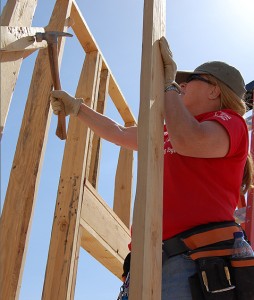Becoming a missionary often means getting a theological degree and learning a new language. As Christendom takes hold in the west, we’re learning that all Christians must be missionaries, and all churches must be missionary churches.
Over the last six months, I have been helping to gather a new church community we’re calling Austin Mustard Seed. As we learn whom we are, I am thankful for the twisted paths of preparation we have all taken to get here.
You want to be a Missionary? Here are nine lessons I learned from preparing the hard way.
1. Learn the Story of the Bible (and the Church)
The word “missionary” has some blood on its hands. For centuries, people in power used it to enforce their way of life on others.
The true word for this is imperialism, not mission. Imperialist use the “God card” to enforce their own way of life, and usually increase their wallets at the same time.

The cure to imperialism? Deep study of the entire Bible, from beginning to end. You will find that the Bible tells of a trajectory of history. It begins with creation, becomes complicated in the fall, gets sorted out by Jesus crucifixion and ends with new creation.
Mission happens when the followers of Christ find their place in the trajectory of God’s mission. Any other mission usually results with blood on your hands.
2. Know Thyself
When I was 23 years old, I went to a church planter’s assessment. At the end of three days of grilling from psychologists and missionaries, they told me “Chris, we love you, but right now you are very, very broken.” At their suggestion, I got into counseling.
Of all the things I’ve learned (so far) in counseling, the most instructive is that I must question my own motives. I found was that much of “my identity” had little to do with me and less to do with Jesus. I was living a life based in pain and brokenness.
Counseling was an excruciating and liberating process of peeling back old scabs and finding the person underneath. It’s a process that I will continue my whole life.
There is nothing more messy that spiritual leaders who has not figured themselves out. Their wounds stand in between the people they are want to reach and God.
Do you want a life of mission? Know who you are so you can get out of the way.
3. Develop a Marketable Skill
Theological training is important. The problem is, there is only one place it will pay the bills: an established church.
If you are going to be a missionary, that may mean years of settling in and learning a city. If you have a marketable skill, your settling in time becomes useful in at least three ways.
- You don’t have to introduce yourself to skeptical non-Christians as a missionary.
- You will make relationships with co-workers, who will teach you about your city and become your friends.
- You won’t go hungry.
4. Take Time to Learn the City
I live in a city that is teetering between the Bible Belt and an unknown future in post-Christendom. In my time here, I have interacted with two types of Church planters.
Type A – They came with funds raised and a deadline to launch a church. They created a team of Christians and quickly start a Sunday gathering. They may have a sustainable community, but because of their speed, it may look more like the Bible Belt than the present and future city.
Type B – They settled in, got jobs, went to festivals, met their neighbors and made friends. It might have taken them longer, but their churches feel like they belong in Austin.
5. Practice, practice, practice
When I first arrived in Austin, I visited 15 churches in 3 months. My goal was to find a church that looked like Austin, and was carrying God’s mission for Austin. When I found one I dove in, and tried to learn everything about what they did and why.
As we get going at Austin Mustard Seed we aren’t trying to reinvent the wheel. We already know a lot that works here, and a few things that do not.
When you take time to practice mission you are working towards something worthwhile and preparing for the future.
6. Find Your Tribe
Missionaryhood is lonely. You are doing a lot of tasks that are hard to explain. You are up against spiritual, practical and financial barriers.
Ecumenicism can be good. It’s helpful to have opportunities to learn from people who are different from you. Too much ecumenicism makes you feel like a fraud.
You need a safe place to be yourself. You need to learn from other people who are trying to do the same crazy thing that you are. You need conversations where you don’t have to be guarded about your theological and even political viewpoints.
Fuller MAGL, Ecclesia Network and Missio Alliance have provided that for me.
7. Get a hobby
When Fresh Expressions asked me why the reason that churches seem to only reach Christians, I gave three reasons. One is that missionaries need to get a hobby.
Your week is generally split a few ways: Family time, work, and hobbies. For many church leaders, “hobbies” gets replaced by “volunteering at church activities”. The result is subtle: when you meet your neighbors, you don’t know what to say. Take up a sport, anything from softball to cycling. Don’t join a church league. Have fun. Soon, you and your new friends will be hanging out after the game, getting to know each other.

8. Give up your church baggage
If you’ve been around church for awhile, you’ve picked up some baggage. You read the Bible the way they taught you. You think church should be organized a certain way. You may only like certain types of music. You have specific and inaccessible language that will inhibit make keeps other people from hearing you.
If we all need counseling to peel back the layers and figure out who we are. Likewise, we need to peel back the layers and discover what it means to live the church.
9. Abandon your dreams
When I first wanted to become a missionary, I thought I would show people how to “do church right.” Then, I got excited about social justice issues and wanted to be a part of a church that “changes the world.” I’ve seen others who wanted to be a proper “postmodern Church” or “reformed Church” or “feminist church.”
Ed Stetzer calls this “planting a church in your head.”
“When we adopt a pre-packaged church formula, or simply steal another church’s identity, we often import the vision God has given someone else for a certain time and place and make it ours–we import a model rather than engaging in God’s mission.”
At some point I realized I couldn’t fix the denominations made me mad. Then I realized I couldn’t fix the world. So I’ve abandoned my dreams. When people ask me what we hope to become at Austin Mustard Seed, I’ve started telling them
“I’m just looking for a group of people who want to figure out how to be church together.”
What do you think you need to do to prepare for a life of mission?











 Tweets
Tweets